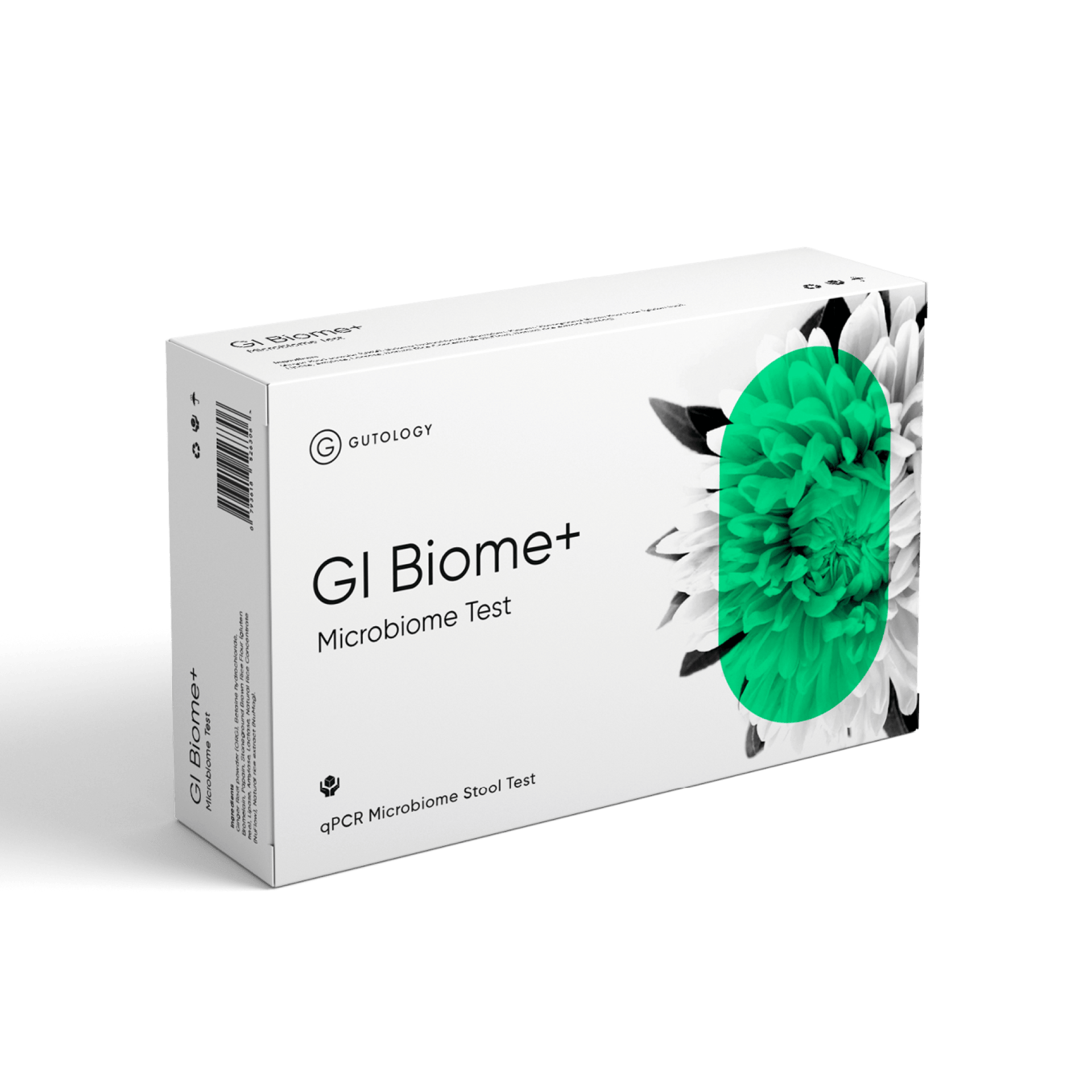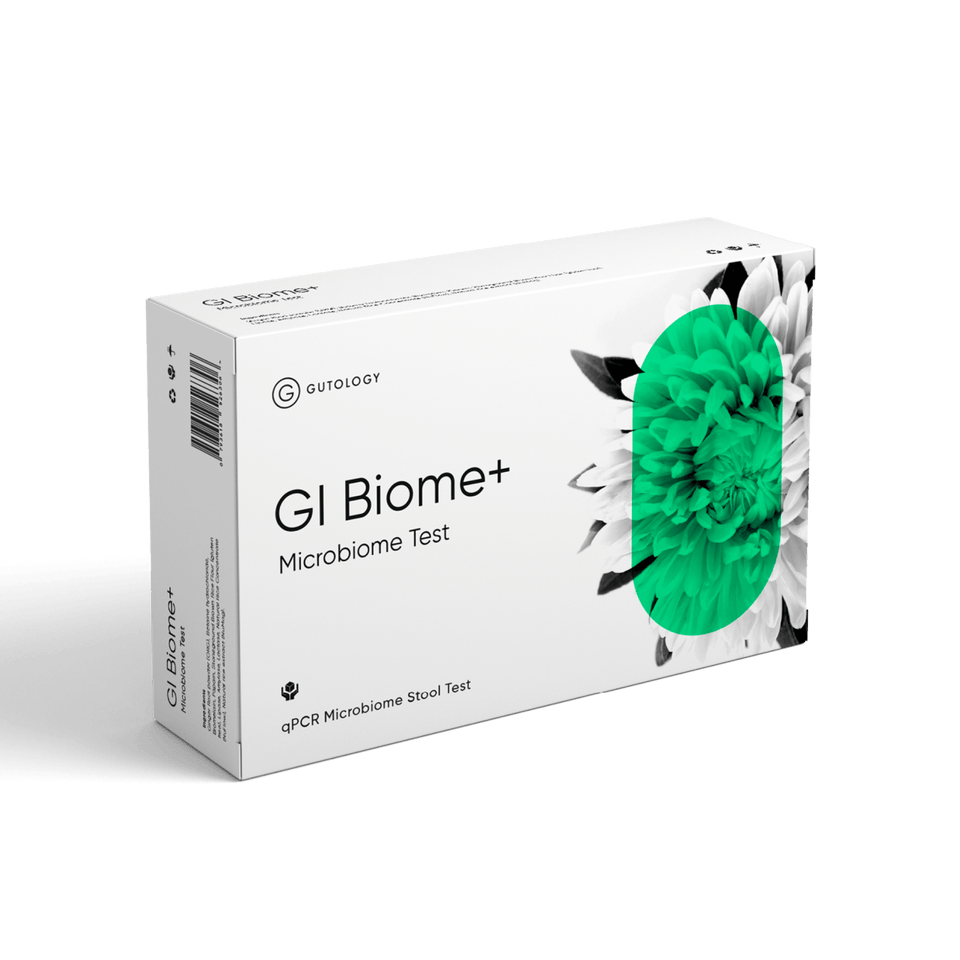Your gut health can have an effect far beyond your digestive system. The food you eat, your stomach acid, bacteria and mineral levels - all impact how your body functions.
Key areas
There are three key areas that can indicate that things aren’t quite right with your gut. These include your:
- Digestive system
- Brain
- Skin, hair and nails
Recently, gut health – in particular the health of our gut bacteria – has also been linked with a wide variety of other conditions, affecting many different parts of the body including:
- Joints
- Lungs and respiratory tract
- General immunity
- Cardiovascular disorders
- Obesity
- Diabetes
Let’s look at each area in depth.
Digestive system
Naturally, an unhealthy gut might be expected to reveal itself through discomfort in the digestive tract.1,2 Some of the more obvious indicators of things not being quite right are:3
- Nausea and vomiting
- Lack of appetite or excessive appetite
- Inflamed or sore tongue
- Mouth ulcers, swollen gums
- Reflux, heartburn and gastritis
- Bloating, belching and flatulence
- Diarrhoea or constipation
- Abdominal pain and cramping
- Worms in the stools
- Pain during defaecation
- A feeling of incomplete emptying after defaecation
- Piles (haemorrhoids)
But many signs of an unhealthy gut don’t occur in the digestive tract itself. You may experience some of the following as well as – or even instead of – these obvious gut problems.
Brain
The gut constantly sends information back to the brain informing it of the current situation down below.4 If there is infection, inflammation, an imbalance in gut bacteria, or simply over-eating, this information will be passed on to the brain.4,5 These signals from the gut can trigger feelings of:3
- Difficulty concentrating
- Low mood
- Anxiety
- Restlessness
- General unease
- Persistent fatigue
- Insomnia.
Poor gut health, particularly the balance of gut bacteria, can also be a factor in a wide range of conditions affecting the brain and nervous system,6 such as migraine,7 neuropathies,8 Alzheimer’s9 and Parkinson’s diseases,9 epilepsy,9,10 multiple sclerosis,11 myelitis,12 autistic spectrum disorders,13,14 and anxiety5 to name just a few.
Skin, hair, nails
Problems in the gut have long been known to show in the skin, hair and nails.15–18 You might experience:
- Skin rashes, spots and acne
- Sores and ulcers
- Changes in skin colour
- Rosacea (red cheeks)
- Eczema
- Psoriasis
- Dermatitis
- Broken veins
- White spots or ridges on the nails
- Loss of hair colour or loss of hair
Improving gut health can often result in improved skin health into the bargain.
Joints
Poor gut health can trigger aches and pains in the joints.19,20 Studies have shown that improved gut health can translate to improvements in arthritis and similar conditions.21
Lungs and the respiratory tract
If you often succumb to colds and ‘flu, or you suffer from asthma this too could be a sign of poor gut health.22–24
General immunity
The gut has been shown to play a major role in our susceptibility to infections, response to vaccination, risk of developing autoimmune diseases,11 cancers and any conditions associated with inflammation.25–27
Cardiovascular disorders
Conditions such as high blood pressure, heart disease, heart failure and high cholesterol have all been linked with the health of our gut, particularly our gut bacteria.28,29
Obesity
The gut has many roles in development of obesity, including release of hormones that control appetite, controlling cravings, how we extract energy and nutrients from our food, and, most importantly how our gut bacteria can influence all of these.30,31
Diabetes
Our ability to control our blood sugar levels is closely tied in with how our gut functions, in particular how we digest carbohydrates and how our digestive system stimulates hormones that control how the sugars released from those carbohydrates are handled.32,33 Further, it has been discovered that people with diabetes may have a different population of gut microbes than those without diabetes.34
Summary
Is there no area of our bodies that is not influenced by our gut health? It’s beginning to look like the answer to that question is: No!
- Bischoff SC. “Gut health”: a new objective in medicine? BMC Med. 2011;9(1):24. doi:10.1186/1741-7015-9-24
- Boeckxstaens G, Camilleri M, Sifrim D, et al. Fundamentals of neurogastroenterology: Physiology/motility – Sensation. Gastroenterology. 2016. doi:10.1053/j.gastro.2016.02.030
- Enders G. Gut. London: Scribe Publications; 2015.
- Bruce-Keller AJ, Salbaum JM, Berthoud H-R. Harnessing Gut Microbes for Mental Health: Getting From Here to There. Biol Psychiatry. 2018;83(3):214-223. doi:10.1016/j.biopsych.2017.08.014
- Clapp M, Aurora N, Herrera L, Bhatia M, Wilen E, Wakefield S. Gut microbiota’s effect on mental health: The gut-brain axis. Clin Pract. 2017;7(4):987. doi:10.4081/cp.2017.987
- Rao M, Gershon MD. The bowel and beyond: the enteric nervous system in neurological disorders. Nat Rev Gastroenterol Hepatol. 2016;13(9):517-528. doi:10.1038/nrgastro.2016.107
- Cámara-Lemarroy CR, Rodriguez-Gutierrez R, Monreal-Robles R, Marfil-Rivera A. Gastrointestinal disorders associated with migraine: A comprehensive review. World J Gastroenterol. 2016;22(36):8149. doi:10.3748/wjg.v22.i36.8149
- Shapiro M, Blanco DA. Neurological Complications of Gastrointestinal Disease. Semin Pediatr Neurol. 2017;24(1):43-53. doi:10.1016/j.spen.2017.02.001
- Tremlett H, Bauer KC, Appel-Cresswell S, Finlay BB, Waubant E. The gut microbiome in human neurological disease: A review. Ann Neurol. 2017;81(3):369-382. doi:10.1002/ana.24901
- Olson CA, Vuong HE, Yano JM, Liang QY, Nusbaum DJ, Hsiao EY. The Gut Microbiota Mediates the Anti-Seizure Effects of the Ketogenic Diet. Cell. 2018. doi:10.1016/j.cell.2018.04.02
- Wekerle H. The gut–brain connection: triggering of brain autoimmune disease by commensal gut bacteria. Rheumatology. 2016;55(suppl 2):ii68-ii75. doi:10.1093/rheumatology/kew353
- Banati M, Csecsei P, Koszegi E, et al. Antibody response against gastrointestinal antigens in demyelinating diseases of the central nervous system. Eur J Neurol. 2013;20(11):1492-1495. doi:10.1111/ene.12072
- Burokas A, Moloney RD, Dinan TG, Cryan JF. Microbiota Regulation of the Mammalian Gut–Brain Axis. Adv Appl Microbiol. 2015;91:1-62. doi:10.1016/bs.aambs.2015.02.001
- Van De Sande MMH, van Buul VJ, Brouns FJPH. Autism and nutrition: the role of the gut–brain axis. Nutr Res Rev. 2014;27(02):199-214. doi:10.1017/S0954422414000110
- Thrash B, Patel M, Shah KR, et al. Cutaneous manifestations of gastrointestinal disease: part I. J Am Acad Dermatol. 2013;68(2):189.e1-189.e21. doi:10.1016/j.jaad.2012.10.037
- Shah KR, Boland CR, Patel M, Thrash B, Menter A. Cutaneous manifestations of gastrointestinal disease: Part i. J Am Acad Dermatol. 2013. doi:10.1016/j.jaad.2012.10.037
- Vaughn AR, Notay M, Clark AK, Sivamani RK. Skin-gut axis: The relationship between intestinal bacteria and skin health. World J Dermatology. 2017;6(4):52-58. doi:10.5314/wjd.v6.i4.52
- Pietrzak D, Pietrzak A, Krasowska D, et al. Digestive system in psoriasis: an update. Arch Dermatol Res. 2017;309(9):679-693. doi:10.1007/s00403-017-1775-7
- Breban M. Gut microbiota and inflammatory joint diseases. Jt Bone Spine. 2016;83(6):645-649. doi:10.1016/j.jbspin.2016.04.005
- Fotis L, Shaikh N, Baszis KW, et al. Serologic Evidence of Gut-driven Systemic Inflammation in Juvenile Idiopathic Arthritis. J Rheumatol. 2017;44(11):1624-1631. doi:10.3899/jrheum.161589
- Jethwa H, Abraham S. The evidence for microbiome manipulation in inflammatory arthritis. Rheumatology. 2016;56(9):kew374. doi:10.1093/rheumatology/kew374
- Budden KF, Gellatly SL, Wood DLA, et al. Emerging pathogenic links between microbiota and the gut–lung axis. Nat Rev Microbiol. 2017;15(1):55-63. doi:10.1038/nrmicro.2016.142
- Garaiova I, Muchová J, Nagyová Z, et al. Probiotics and vitamin C for the prevention of respiratory tract infections in children attending preschool: a randomised controlled pilot study. Eur J Clin Nutr. 2015;69(3):373-379. doi:10.1038/ejcn.2014.174
- Marsland BJ, Trompette A, Gollwitzer ES. The Gut-Lung Axis in Respiratory Disease. Ann Am Thorac Soc. 2015;12 Suppl 2:S150-6. doi:10.1513/AnnalsATS.201503-133AW
- Blander JM, Longman RS, Iliev ID, Sonnenberg GF, Artis D. Regulation of inflammation by microbiota interactions with the host. Nat Immunol. 2017;18(8):851-860. doi:10.1038/ni.3780
- Katsnelson A. How microbes train our immune system. Nature. September 2011. doi:10.1038/news.2011.550
- Million M, Tomas J, Wagner C, Lelouard H, Raoult D, Gorvel J-P. New insights in gut microbiota and mucosal immunity of the small intestine. Hum Microbiome J. 2018;7-8:23-32. doi:10.1016/J.HUMIC.2018.01.004
- Collins S, Reid G. Distant Site Effects of Ingested Prebiotics. Nutrients. 2016;8(9). doi:10.3390/nu8090523
- Ishiguro E, Haskey N, Campbell K. Gut Microbiota. Elsevier; 2018. doi:10.1016/C2016-0-00072-4
- Dao MC, Clément K. Gut microbiota and obesity: Concepts relevant to clinical care. Eur J Intern Med. 2018;48:18-24. doi:10.1016/j.ejim.2017.10.005
- Torres-Fuentes C, Schellekens H, Dinan TG, Cryan JF. The microbiota–gut–brain axis in obesity. Lancet Gastroenterol Hepatol. 2017;2(10):747-756. doi:10.1016/S2468-1253(17)30147-4
- Tremaroli V, Bäckhed F. Functional interactions between the gut microbiota and host metabolism. Nature. 2012;489(7415):242-249. doi:10.1038/nature11552
- Takiishi T, Fenero CIM, Câmara NOS. Intestinal barrier and gut microbiota: Shaping our immune responses throughout life. Tissue Barriers. 2017;5(4):e1373208. doi:10.1080/21688370.2017.1373208
- Johnson EL, Heaver SL, Walters WA, Ley RE. Microbiome and metabolic disease: revisiting the bacterial phylum Bacteroidetes. J Mol Med (Berl). 2017;95(1):1-8. doi:10.1007/s00109-016-1492-2



